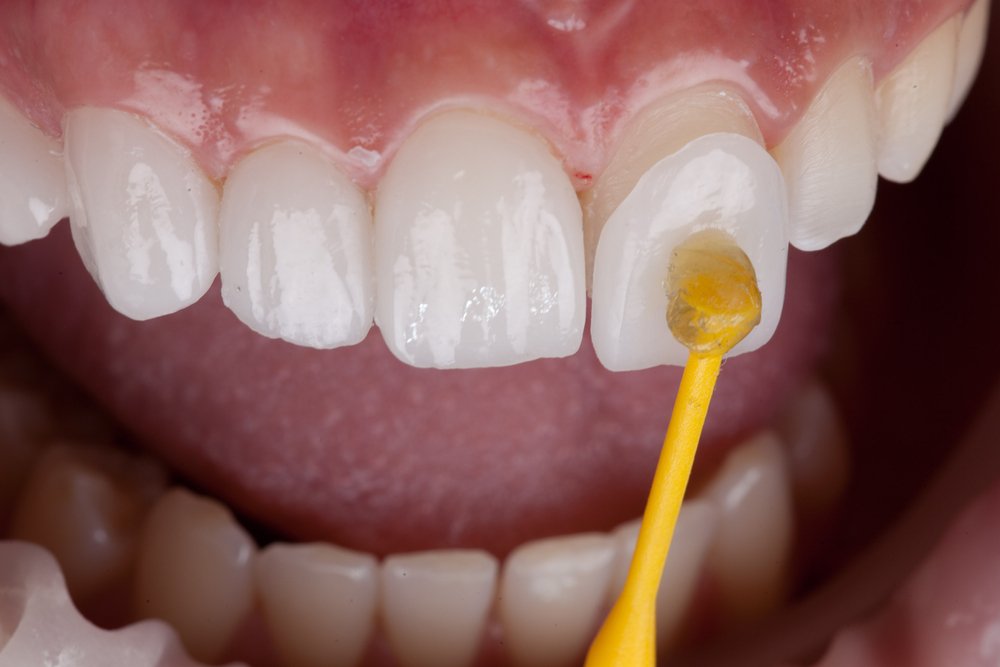If you’re dreaming of a flawless, radiant smile, porcelain veneers may be the perfect solution. These thin, custom-made shells are designed to cover the front surface of teeth, improving their appearance and creating a stunning, natural-looking smile. In this guide, we’ll break down everything you need to know about porcelain veneers—from what they are and how they work, to the benefits, risks, and what to expect during the process.
What Are Porcelain Veneers?
Porcelain veneers are ultra-thin shells made from medical-grade ceramic. They are custom-crafted to match the color, shape, and size of your natural teeth and are bonded to the front surfaces to correct a variety of aesthetic dental issues.
Veneers are a popular choice in cosmetic dentistry because they offer a long-lasting solution to achieving a picture-perfect smile. Unlike dental crowns, which cover the entire tooth, veneers only cover the front part, making them less invasive while still offering dramatic results.
What Problems Can Porcelain Veneers Fix?
Porcelain veneers are versatile and can address a wide range of cosmetic dental concerns, including:
- Discolored or stained teeth that don’t respond to whitening treatments
- Chipped or cracked teeth
- Gaps between teeth
- Misshapen or uneven teeth
- Worn-down enamel
- Minor misalignment or crookedness (in place of orthodontics for mild cases)
The Process: What to Expect
Getting porcelain veneers typically involves three visits to your cosmetic dentist:
1. Consultation & Smile Design
During your initial consultation, your dentist will discuss your goals and assess whether veneers are right for you. They may take X-rays or make impressions of your teeth. A mock-up or digital preview of your new smile may be created.
2. Tooth Preparation
A small amount of enamel (usually less than 0.5 mm) is gently removed from the front of each tooth to create space for the veneer. Temporary veneers may be placed while your permanent ones are crafted at a dental lab.
3. Veneer Placement
Once your custom veneers are ready, your dentist will check their fit and appearance. After any necessary adjustments, the veneers are bonded to your teeth using a strong adhesive and cured with a special light.
Benefits of Porcelain Veneers
- Natural appearance: Porcelain closely mimics the light-reflecting qualities of natural tooth enamel.
- Stain resistance: Veneers are more resistant to coffee, tea, and wine stains than natural teeth.
- Durability: With proper care, porcelain veneers can last 10–15 years or longer.
- Minimally invasive: Requires less tooth reduction compared to crowns.
- Instant smile transformation: Achieve a dramatic cosmetic improvement in just a few visits.
Are Porcelain Veneers Right for You?
Ideal candidates for porcelain veneers:
- Have good oral health (no active gum disease or severe tooth decay)
- Practice good dental hygiene
- Have realistic expectations about the results
- Want to improve the appearance of their smile without undergoing major dental procedures
Caring for Your Veneers
Porcelain veneers are strong, but they still need proper care:
- Brush and floss daily using non-abrasive toothpaste
- Avoid biting on hard objects (like pens or ice)
- Wear a nightguard if you grind your teeth
- Visit your dentist regularly for checkups and cleanings
Potential Drawbacks to Consider
While porcelain veneers are an excellent cosmetic solution, it’s important to weigh the potential downsides:
- Irreversible: Enamel removal is permanent.
- Cost: Veneers can be expensive, and they are usually not covered by insurance.
- Replacement: Veneers may eventually need to be replaced due to wear or damage.
How Much Do Porcelain Veneers Cost?
Costs vary depending on location, dentist expertise, and the number of veneers needed, but typically range from $900 to $2,500 per tooth. Some practices offer financing or payment plans to make treatment more affordable.
Conclusion: A Beautiful Smile Starts Here
Porcelain veneers offer a powerful way to enhance your smile and boost your confidence. Whether you’re dealing with stubborn stains, minor chips, or uneven spacing, veneers can give you the bright, symmetrical smile you’ve always wanted. If you’re considering this treatment, consult with a cosmetic dentist to explore your options and determine if veneers are right for you.




